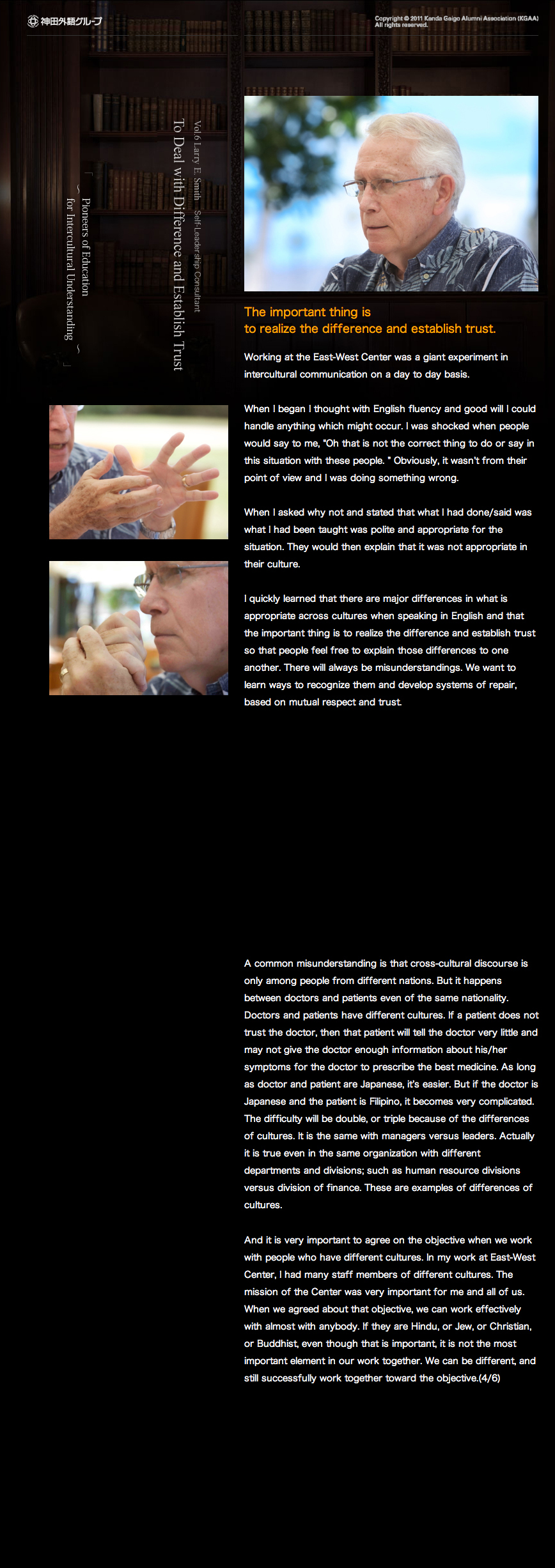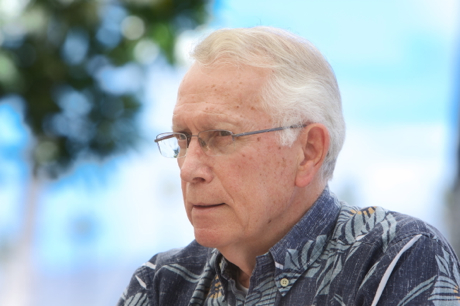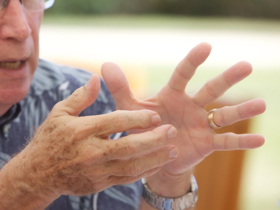

Copyright © 2011 Kanda Gaigo Alumni Association(KGAA). All rights reserved.

Working at the East-West Center was a giant experiment in intercultural communication on a day to day basis.

When I began I thought with English fluency and good will I could handle anything which might occur. I was shocked when people would say to me, “Oh that is not the correct thing to do or say in this situation with these people. ” Obviously, it wasn’t from their point of view and I was doing something wrong.

When I asked why not and stated that what I had done/said was what I had been taught was polite and appropriate for the situation. They would then explain that it was not appropriate in their culture.
I quickly learned that there are major differences in what is appropriate across cultures when speaking in English and that the important thing is to realize the difference and establish trust so that people feel free to explain those differences to one another. There will always be misunderstandings. We want to learn ways to recognize them and develop systems of repair, based on mutual respect and trust.
A common misunderstanding is that cross-cultural discourse is only among people from different nations. But it happens between doctors and patients even of the same nationality. Doctors and patients have different cultures. If a patient does not trust the doctor, then that patient will tell the doctor very little and may not give the doctor enough information about his/her symptoms for the doctor to prescribe the best medicine. As long as doctor and patient are Japanese, it’s easier. But if the doctor is Japanese and the patient is Filipino, it becomes very complicated. The difficulty will be double, or triple because of the differences of cultures. It is the same with managers versus leaders. Actually it is true even in the same organization with different departments and divisions; such as human resource divisions versus division of finance. These are examples of differences of cultures.
And it is very important to agree on the objective when we work with people who have different cultures. In my work at East-West Center, I had many staff members of different cultures. The mission of the Center was very important for me and all of us. When we agreed about that objective, we can work effectively with almost with anybody. If they are Hindu, or Jew, or Christian, or Buddhist, even though that is important, it is not the most important element in our work together. We can be different, and still successfully work together toward the objective.(4/6)